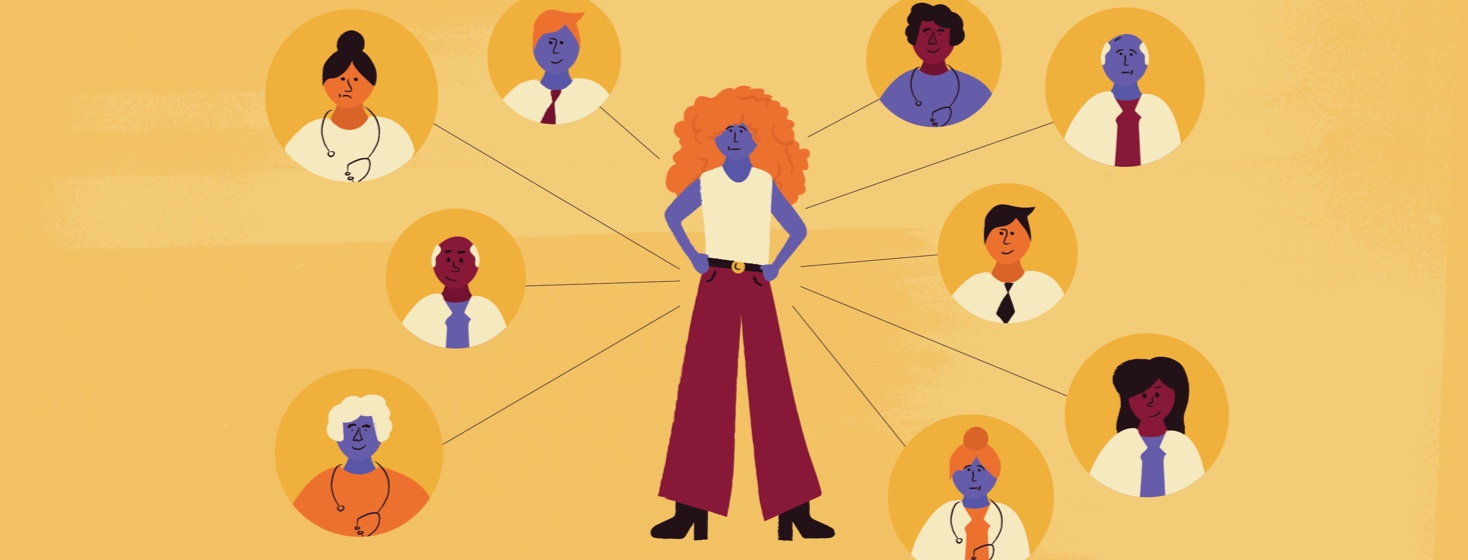When Endo Symptoms Return, Or New Ones Pop Up
A few years ago, a lot of my symptoms got worse. I don't know what changed. I'm 38, so maybe it had something to do with hormones and perimenopause. But after I entered my mid-30s, I started getting more migraines, nausea, bloating, fatigue, back and leg pain, and pre-menstrual aches. Even my period pain and bleeding got worse. It was like the endo of my 20s came back. And it was on steroids.
It was bad enough that some of my old problems resurfaced. But I also added some new ailments, including allergies, more food intolerances, and sciatica. My OB-GYN wasn't much help. She said I could get a hysterectomy, IUD, or suppress my hormones. None of those treatments were right for me. For starters, when I took hormonal birth control in the past, it made some of my symptoms worse. And I wasn't ready to give up my uterus.
So I set out to find other options. Here’s how I took control.
I checked in with all my doctors
If a new or old symptom pops up, I schedule visits with my health care team. Endo affects my whole body. And there isn’t one kind of doctor who can solve all of my problems. This time, I asked my OB-GYN to refer me to a pelvic floor specialist and a gastroenterologist. For sciatica, I asked my general practitioner — the angel who gave me medicine called triptans for my migraines — to send me to a physical therapist.
I don’t know how many healthcare professionals I’ve visited about my endo. But over the past five years, I’ve sought answers from:
- 3 chiropractors
- 2 general practitioners
- 2 gastroenterologists
- A pelvic floor therapist
- A physical therapist
- A registered dietitian
- An allergist
- An OB-GYN (surprisingly, the least helpful on this list)
And in the next month, I'm scheduled to see:
- A gut health psychologist
- An ear, nose, and throat doctor (is that endo in my nose?)
I’m sure that excision surgery would be helpful for many of my problems. But I don’t have access to that kind of procedure on my insurance. I know I'm really fortunate to have healthcare coverage at all. So for now, I'm grateful that at least I can see a separate physician for each of my symptoms.
I changed my diet (with the help of my doctor)
As we age, our ability to absorb nutrients and digest food declines. That’s bad news for me since I’ve always had digestive problems. But the good news is that my new GI doctor and dietitian actually know that endo can affect the gut. And they're helping me do something about it.
To manage my new issues, I adjust what and how I eat based on where I am in my menstrual cycle. And I take a digestive enzyme (generic Bean-O) and avoid a lot of high-FODMAP foods. This lessens my bloating, abdominal pain, and nausea.
I kept fighting for care
I thought my first laparoscopy (ablation) would fix everything. Spoiler alert: it didn't. Most of my symptoms — and endomtriomas — continued afterward. Since hormonal birth control didn't help me, both of my surgeons were at a loss for what else to do. That's when I started looking elsewhere.
As many warriors know, endo has no cure. That means it’s a chronic illness that I’ll have to manage for the rest of my life. And although my second surgeon said to just wait it out until menopause. I think I'll keep trying to help myself now. And I hope you will too.

Join the conversation